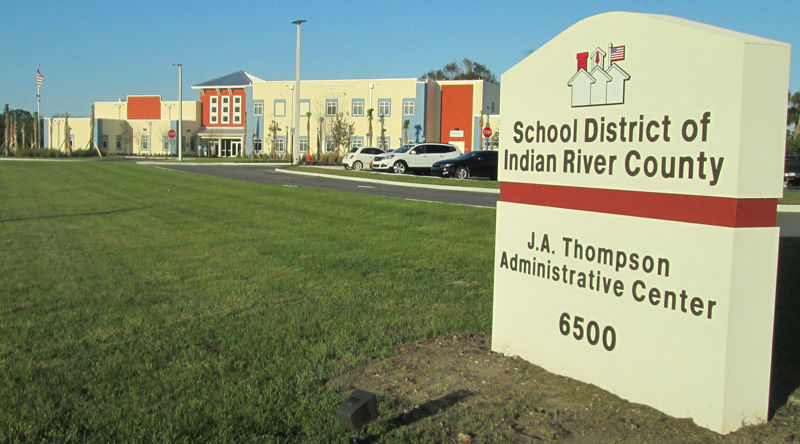INDIAN RIVER COUNTY — All five charter schools in Indian River County are suing the school district, alleging the district is flaunting state funding guidelines that require it to treat charter schools the same as district schools.
Charter school leaders blame overcrowded conditions, class cuts and the loss of valued teachers on the district’s refusal to provide more funding for campus repairs and new buildings needed for an expanding student population.
The five charters – the Charter High School, North County Charter School, St. Peter’s Academy, Sebastian Charter Junior High and Imagine School – educate 13 percent of county students but the schools receive only $295 per student in capital funding while other schools in the district get $1,546 per student, according to Gene Waddell, Charter High School board chairman.
If the money was divided equally, all schools would get $1,365 per student.
Even though the charters are public schools entitled to tax dollars, they say they have been shortchanged by the Indian River County School Board for the past three years. Since 2013, the charters have been trying to get what they believe is their fair share of a tax levy they helped pass and have finally gone to court to force the district’s hand.
The charters filed their case against the school board in April in the State of Florida Division of Administrative Hearings, seeking $2 million in back funding, interest on that money, and reimbursement for legal fees.
The school board came to the charter school leaders in 2012, Waddell said, and asked them to help get a referendum passed to replace and increase a school tax levy soon to expire. The leaders gave their support with the understanding charter public school students would count equally with other public school students and the money would be shared among schools on an equitable per student basis.
The referendum even stated it was for “all students” in the district, and by law public charter school students are supposed to be funded equally.
The 0.60 levy “passed overwhelmingly” in November 2012. Because of the levy, property owners in the county pay an extra 60 cents for each $1,000 of assessed value each year, which brought in an extra $26 million in revenue for the schools over the past three years.
So far, so good. But when it came to doling out the revenue, which is controlled by the district, the charter schools were given only 5 percent of the total collected – even though charter students make up 13 percent of the county’s student population.
Waddell said the district owes the charter schools about $2 million in back disbursements. In the coming year, which is the fourth and final year of the levy voters approved in 2012, another $600,000 to $700,000 will be due to the charters according to their calculation. The charters are asking for 1 percent monthly interest calculated daily on top of the past due revenue, in accordance with a state law penalizing districts for withholding money from charter schools. “We haven’t calculated that [interest total] yet,” Waddell said.
Waddell went before the school board more than a year ago, in the winter, asking board members to put money aside during that spring’s budget talks, and to warn them the charters were prepared to take legal action.
“We told them you can avoid this,” Waddell said. “You can do the right thing, you can avoid attorney fees – pay us back.” Instead of agreeing to additional funds for the charters, school board members got mad about the request, Waddell said.
Mediation talks were held in December 2015. “It took about half an hour,” Waddell said. “We said you owe us $1.9 million – it’s gone up since then – and their answer was zero.”
“We don’t have any additional money to share, as our capital dollars are already needed to cover the repairs and renovations to our facilities,” Indian River County School Superintendent Mark Rendell told Vero Beach 32963 in February.
“The amount of capital funding they receive directly from the state was robust for them a few years ago, but has recently declined, and I believe that prompted them to look for additional funding,” Rendell said. “We do already share some additional funding with them from a discretionary property tax millage. They are currently requesting a larger share of that, and this is the matter being contested right now.”

